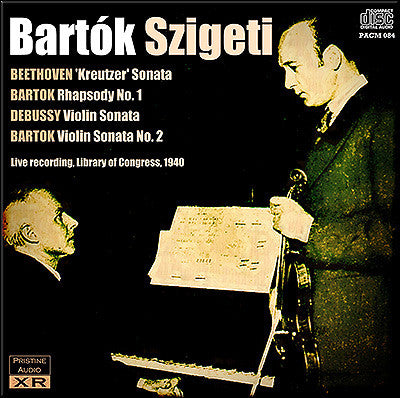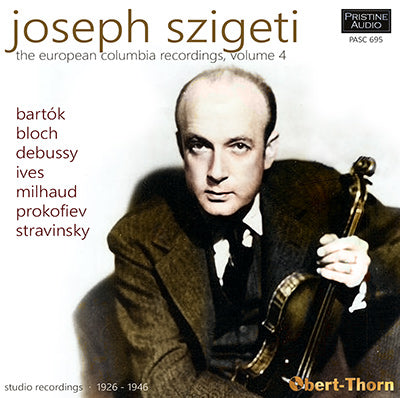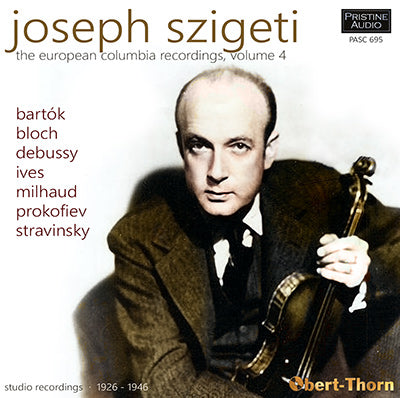Béla Bartók

Béla Viktor János Bartók (25 March 1881 – 26 September 1945) was a Hungarian composer, pianist, and ethnomusicologist. He is considered one of the most important composers of the 20th century; he and Franz Liszt are regarded as Hungary's greatest composers (Gillies 2001). Through his collection and analytical study of folk music, he was one of the founders of comparative musicology, which later became ethnomusicology.
Bartók's music reflects two trends that dramatically changed the sound of music in the 20th century: the breakdown of the diatonic system of harmony that had served composers for the previous two hundred years; and the revival of nationalism as a source for musical inspiration, a trend that began with Mikhail Glinka and Antonín Dvořák in the last half of the 19th century. In his search for new forms of tonality, Bartók turned to Hungarian folk music, as well as to other folk music of the Carpathian Basin and even of Algeria and Turkey; in so doing he became influential in that stream of modernism which exploited indigenous music and techniques.
One characteristic style of music is his Night music, which he used mostly in slow movements of multi-movement ensemble or orchestral compositions in his mature period. It is characterised by "eerie dissonances providing a backdrop to sounds of nature and lonely melodies". An example is the third movement (Adagio) of his Music for Strings, Percussion and Celesta.

Béla Bartók
Béla Viktor János Bartók (25 March 1881 – 26 September 1945) was a Hungarian composer, pianist, and ethnomusicologist. He is considered one of the most important composers of the 20th century; he and Franz Liszt are regarded as Hungary's greatest composers (Gillies 2001). Through his collection and analytical study of folk music, he was one of the founders of comparative musicology, which later became ethnomusicology.
Bartók's music ...
BARTOK Rhapsody No. 1 for Violin & Piano
DEBUSSY Sonata for Violin and Piano
BARTOK Second Sonata for Violin and Piano
Recorded at the Coolidge Auditorium, Library of Congress, Washington DC on April 13, 1940
Total duration: 69:43
Béla Bartók, piano
BACH Violin Sonatas 1 & 2
BACH Concerto for Two Violins
HANDEL Violin Sonata No. 4
TARTINI Violin Sonata in G
TARTINI Violin Concerto in D minor
MOZART Violin Sonata No. 21
MOZART Violin Concerto No. 4
short works by BACH, EXAUDET, TARTINI, VERACINI
BEETHOVEN Violin Concerto
WEBER Violin Sonata No. 3
PAGANINI Caprices
SCHUBERT Rondo
MENDELSSOHN Violin Concerto
BRAHMS Violin Concerto
BRAHMS Violin Sonata No. 3
Music by Berlioz, Hubay, Elgar, Kreisler, Dvořák, Chabrier, Rimsky-Korsakov, Falla
WARLOCK Capriol Suite
PROKOFIEV Violin Concerto
BARTÓK Hungarian Folk Tunes
BARTÓK Romanian Folk Dances
IVES Violin Sonata No. 4
BLOCH Violin Concerto
music by Debussy, Ravel, Milhaud, Lie, Szymanowski, Scriabin, Stravinsky
WARLOCK Capriol Suite
PROKOFIEV Violin Concerto
BARTÓK Hungarian Folk Tunes
BARTÓK Romanian Folk Dances
IVES Violin Sonata No. 4
BLOCH Violin Concerto
music by Debussy, Ravel, Milhaud, Lie, Szymanowski, Scriabin, Stravinsky
Studio recordings, 1926-46
Total duration: 2hr 4:59
Joseph Szigeti, violin
Nikita Magaloff, Kurt Ruhrseitz, Béla Bartók, Andor Foldes, piano
London Philharmonic Orchestra
conducted by Sir Thomas Beecham
Philharmonia Orchestra
conducted by Constant Lambert
Orchestre de la Société des Concerts du Conservatoire
conducted by Charles Munch



